In September 2022, Advance CTE and ECMC Foundation announced the second cohort of The Postsecondary State Career Technical Education (CTE) Leaders Fellowship at Advance CTE—Sponsored by ECMC Foundation. The Advance CTE — ECMCF Fellows include representation across multiple demographic categories reflecting the Fellowship’s goal of intentionally building a postsecondary leadership pipeline for underserved populations in Career Technical Education (CTE) that closes racial representation gaps and removes equity barriers to postsecondary leadership advancement.
This month, Advance CTE sat down with veteran and ECMCF Fellow, Dr. Angela Lawhorne (VA), whose decades of experience in CTE and workforce development sparked her desire to promote more effective pathways for some of the most vulnerable learner populations. Through the Fellowship’s emphasis on developing equity minded leaders, she has been able to empower the community colleges she works with to refocus on how they are engaging and serving justice-involved learners.
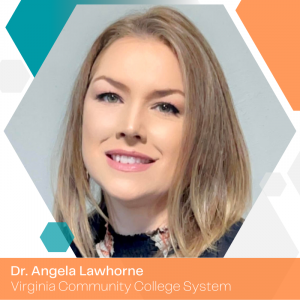 Tell me more about your journey to the Fellowship.
Tell me more about your journey to the Fellowship.
I’ve been working in CTE for about 10 years and in workforce development for 20 years. I was really excited to join the Fellowship because I saw an opportunity to learn more about what CTE looks like in other states and the best practices that I could replicate and bring to Virginia. I was especially eager to learn about strategies for expanding access to learners.
What skills or areas have you experienced the most growth in the program?
Participating in the Fellowship has allowed me to grow my ability to apply a diversity, equity, and inclusion lens in my work as the Director of Career Education Programs and Workforce Partnerships. I’ve been able to build a more comprehensive understanding of the barriers that different groups of learners face, and the importance of not just recruitment, but the continued support that they receive once they enroll to complete their programs. I know that there are steps we can take to improve outreach to learners that have been minoritized, or those that come from low income or rural communities. Through intentional support structures, we can increase awareness about career pathways, stackable credentials, and get them into a career.
I’ve learned a lot about how to provide intentional support for special populations and the different nuances of the obstacles that these groups of learners face.
Do you feel like the topics and experiences in the Fellowship have helped you advance in your current career/ at your current organization?
Absolutely. In my current role as the Director of Career Education Programs and Workforce Partnership, I feel like I’m exactly where I need to be to make a major impact on CTE programs, both the credit and on the workforce (credential) side. Virginia has a ‘one door effort’ which allows students, no matter where they come into the college, to access information on both workforce and academic programs. This means that we’re able to give them a more complete picture of the different certifications or licenses that they can earn on their path to completing a certificate or a degree.
I support our 23 colleges and provide guidance and resources about how to establish and expand programs. Most recently, I helped write a large infrastructure grant application, and the knowledge that I’ve gained through the Fellowship allowed me to present a thorough background on and explanation for how this project will provide specific wraparound services and supports to make our learners successful. I know that I’m able to have an impact in my role because I can broker connections between workforce and our colleges to design high-quality curriculum and programs that connect learners with employers.
How has your experience in the fellowship helped you explore new spaces or positions in postsecondary state CTE leadership?
The Fellowship has helped me gain a more holistic view of our population of learners and their needs. The workshop speakers were incredible, and I’ve been able to push myself beyond just the cycle of outreach and recruitment to focus more on the reasons that learners persist and complete their programs. My dissertation is on the topic of student success coaching, and I believe that this is an area where we should be doing more to ensure that learners have the help they need to be matched with program options that are best for them.
How has the Fellowship expanded your network?
I’ve made some amazing connections through the fellowship. My coach has been incredibly supportive in connecting me with a network for both my professional and personal development. She’s also provided guidance in my process for completing my real-world project for the Fellowship. My real world project topic is on expanding higher education for justice impacted individuals in Virginia. We created a Canvas course that serves as a resource repository for the colleges to connect them with everything they need to know to launch a new program. This includes information about Pell Expansion, contacts at the prisons or jails, and then best practices from other colleges.
We’ve also created a resource page on the website, credits2careers.org (C2C), which was launched specifically for former military who want to determine their eligibility for credit for prior learning. We’ve included a page on the site for justice-involved learners. The website allows them to go in and plug in any certifications or other education they’ve completed, and it will show the equivalent credit for prior learning programs at each of our colleges. If they were enrolled in a CTE program while incarcerated, they can use this tool to find the colleges that offer their program and continue with little disruption.
Our next steps will be to survey the 23 colleges to collect data on the training of justice involved learners and their current program offerings.
Have you discovered new opportunities for what a role in postsecondary CTE could look like/ the responsibilities of such a position?
I definitely look forward to advancing my career. I would love to expand my reach and have a larger responsibility for expanding CTE and workforce development programs across the state. We’ve established a consortium with over 100 members made up of colleges, representatives from the programs at the prisons, the Vera Institute of Justic, and the Laughing Gull Foudnation to name a few. I’ve been leading monthly, virtual community of practice meetings as well as two in person convenings per year. Our new Chancellor is excited to continue to build on the positive momentum we’ve seen with our new Canvas and C2C initiatives. He’s eager to make these a part of his mission to expand the services that our justice-involved learners receive.
To connect with Dr. Lawhorne, contact her at [email protected]


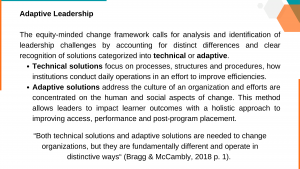
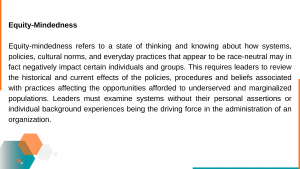
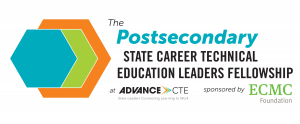
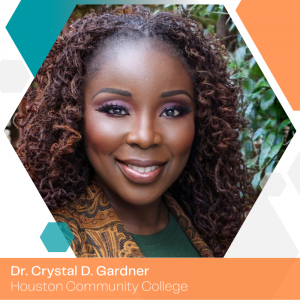 Dr. Crystal Gardner currently serves as the Instructional Supervisor for the Houston Community College (HCC) Alternative Teacher Certification Program (ATCP). In this role, she oversees instructional operations, program development, quality control, and compliance management. Joining the Fellowship was an exciting opportunity to fully immerse herself in the world of career and technical education (CTE) through equity-aligned learning and real-world practicum.
Dr. Crystal Gardner currently serves as the Instructional Supervisor for the Houston Community College (HCC) Alternative Teacher Certification Program (ATCP). In this role, she oversees instructional operations, program development, quality control, and compliance management. Joining the Fellowship was an exciting opportunity to fully immerse herself in the world of career and technical education (CTE) through equity-aligned learning and real-world practicum. “When our passion fuels our purpose, we will always blossom where we have been planted and do great work as servant leaders.”
“When our passion fuels our purpose, we will always blossom where we have been planted and do great work as servant leaders.” “As a lifelong learner, I’ve always been intentional in my pursuit of professional development and growth in my career.”
“As a lifelong learner, I’ve always been intentional in my pursuit of professional development and growth in my career.”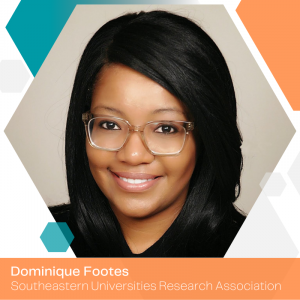 Tell me more about your journey to the Fellowship.
Tell me more about your journey to the Fellowship.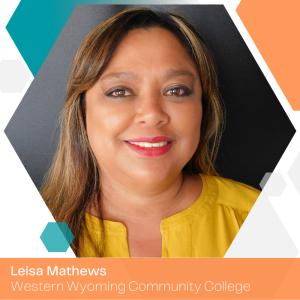 Tell us about your journey to the Fellowship.
Tell us about your journey to the Fellowship. Pennsylvania
Pennsylvania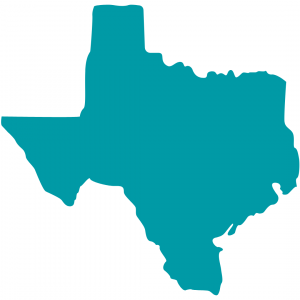 Texas
Texas Ohio
Ohio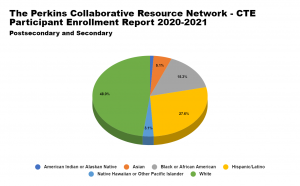
 After struggling academically as an undergraduate at a liberal arts college and unsure of his future, Karl Ohrn joined the United States Air Force, ultimately serving 30 years. It was in the Air Force that Karl had his first exposure to Career Technical Education (CTE).
After struggling academically as an undergraduate at a liberal arts college and unsure of his future, Karl Ohrn joined the United States Air Force, ultimately serving 30 years. It was in the Air Force that Karl had his first exposure to Career Technical Education (CTE).